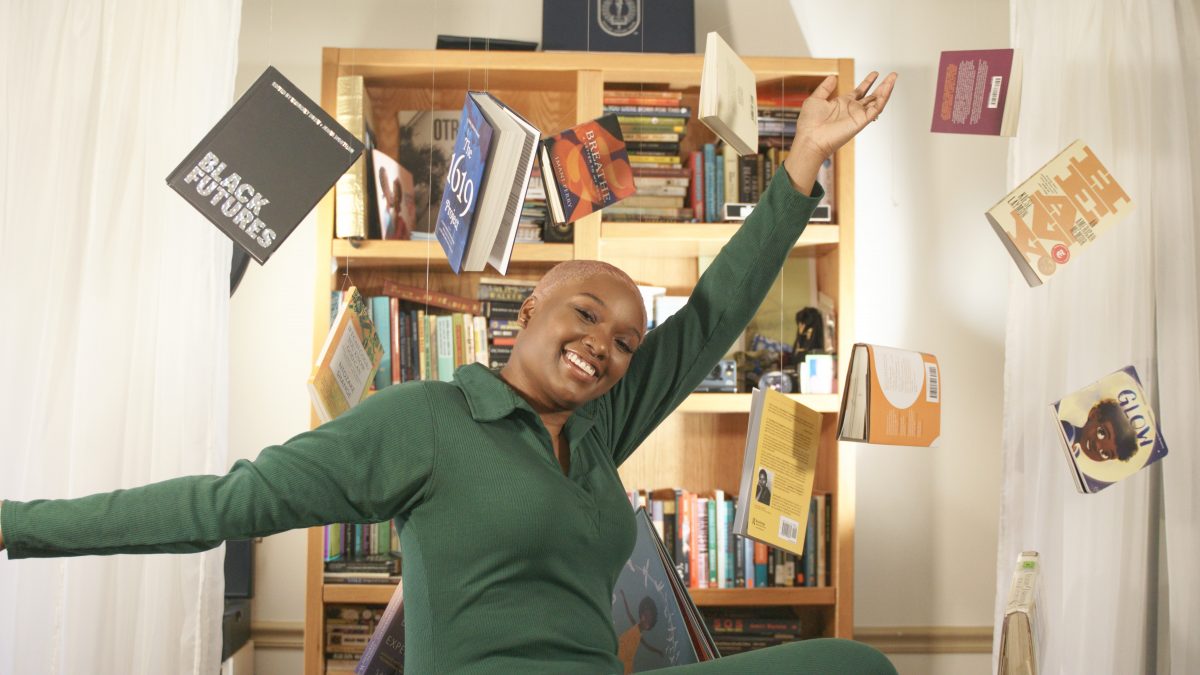A new Black-owned bookstore focusing on books written by BIPOC and LGBTQIA+ authors will soon be opening in Memphis.
Cafe Noir originally started as an online book store founded by Jasmine Settles. Settles recently raised enough money to open a brick and-mortar location that is slated to open in the summer of 2023.
In recent years, there has been more attention brought to Black-owned bookstores in the United States, as more began to open. According to research compiled by WordsRated, as of 2023 there are an estimated 149 book stores in America that are Black-owned. WordsRated said that this number has increased from pre-pandemic numbers, but these book stores only make up 6 percent of all independently owned bookstores in the United States.
“When I envisioned Cafe Noir, I always envisioned it as a space that you come to,” said Settles. “A space where you could kind of delve into these Black works. I also kind of wanted to create a safe space for folks in the community who might not feel accounted for in other spaces. I always saw it as a refuge.”
Physical bookstores are vital for community engagement and development, said Settles. “Only so much can happen in law offices and political spaces,” said Settles. “I think when it comes to the people, they need a place where they can feel safe, and feel seen.”
Settles touts many titles as a native Memphian and a bibliophile. However her identity as a Black woman plays an important role in her decision to provide such a specific selection on her shelves.
Settles attributes her love of reading to her grandmother. She gave Settles her first introduction to literature, focusing on the work of Shakespeare, world-building, and the importance of reading.
“As I got older, I didn’t do as much reading, but I still do reading here and there,” Settles said. “From there it kind of grew, and I went to college. I ended up kind of losing track because I went to college, played basketball, and that took up most of my time, so I didn’t really have that much time to devote to reading.”
Once Settles received her bachelor’s degree, she decided to go on and get her master’s. She said that she wanted to pursue something that she always wanted, which was studying english and literature.
After enrolling at the University of Memphis, Settles took a course in African-American women’s speculative fiction writers, which she credits as the most “life-changing class of her life.”
“I think being introduced to so many Black women’s work … but not only just their work, you get to watch them world-build, grapple with societal questions. You get to see a lot more protagonist characters that are Black women. So it kind of just felt good overall, and I was like ‘Wow I’ve never heard of these authors. I feel like that’s a shame. I feel like I’ve been shorted. I wish I would have known of these authors when I was younger.’”
With this in mind, Settles said she began to think she should open a bookstore. She wanted to highlight and amplify the voices that were marginalized and not included in the curriculum she was taught in her formative years, and that including marginalized voices was also a step towards liberation.
“None of us are free until all of us are free,” said Settles. “The only way liberation can happen is if we give space where everyone can be liberated. I think Black women in particular, and members of the LGBTQIA+ community have carried the torch of liberation, because they knew and saw that none of them or us could survive in a white-supremacist, patriarchal, capitalist infrastructure.”
Those systems were not made to benefit those groups, Settles said, nor were they made for them to survive. She cited the work of authors like bell hooks and Toni Morrison, and how they address inequities in these systems by posing questions, in hopes provoking the reader to do the work.
“A lot of those authors have done the work for us,” Settles said, “kind of laying the maps of what liberation can look like.”
